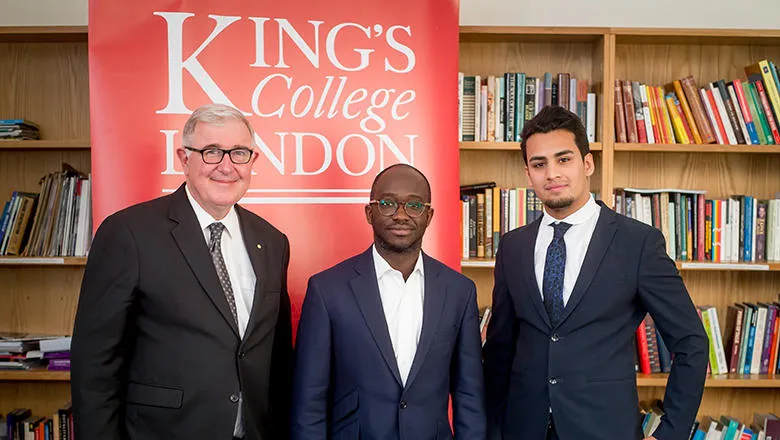18 May 2018
Higher education minister debates with the King’s community
Students and staff had the opportunity to share their ideas and perspectives on the future of higher education when Sam Gyimah MP, the minister with responsibility for universities, visited King’s College London for a Q&A in the Great Hall on Thursday 17th May.

The Q&A was the latest stop on Mr Gyimah’s ongoing #Samoncampus tour of universities across the country, and the minister used the visit to share his views on the vitality of freedom of speech on campuses, and the role of universities and student unions in securing freedom of speech within the law.
In addition to debating freedom of speech, students and staff also asked questions on a variety of topics including the future of higher education funding, BAME attainment, fairness for international students, and support for student mental health services.
Commenting on the Minister’s visit to King’s, the President & Principal Professor Ed Byrne said:
“The minister’s visit as part of his #Samoncampus tour saw a lively discussion on a number of the big issues facing King’s and the university world.
“It is great to see a Government minister pro-actively and meaningfully seeking to debate richly contested ideas and issues with the student and academic community, especially during a time of major change in the higher education environment in this country.
Freedom of expression is so vital to the continued intellectual and educational vibrancy of King’s College London.”
Momin Saqib, the President of KCLSU, who chaired the Q&A session with the Minister added:
“I believe that Universities are places to facilitate intellectually stimulating discussions, environments for constructive debates, places where ideas get tested, which are all done in a bid for the advancement of human knowledge and the betterment of our society.
In the UK, freedom of expression is protected in universities to ensure that universities remain safe spaces for debate, whether within the sphere of academia or outside it, as long as the debate takes place within the law. To ensure we successfully provide safe platforms for free, peaceful and respectful dialogue we need to reduce the hoops students have to jump through because of the complexity and sometimes conflicting advice we get from various regulatory bodies and the government.”
